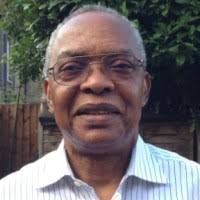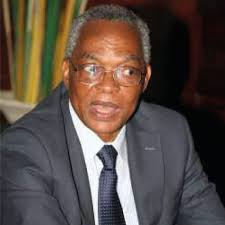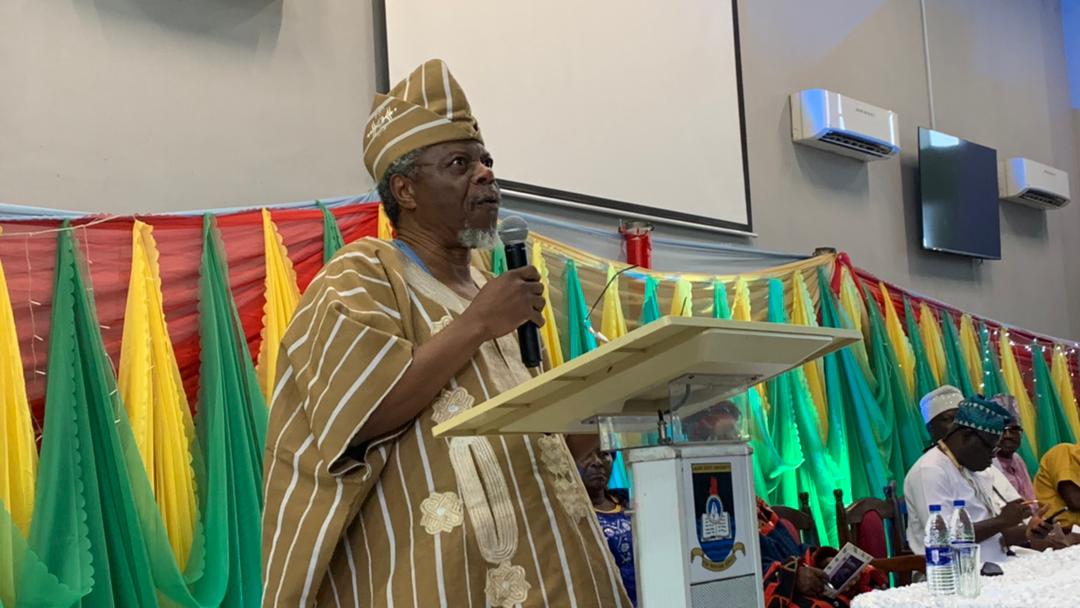By Toyin Falola
The Noble Academic and Patriot by Ayorinde Omosebi is a biography of Professor Jide Osuntokun chronicling the life of this great historian, diplomat, and educator who has left significant marks across Nigeria’s academic and political landscape. In a careful reading of this biography, it is seen that important aspects of his life, achievements, and purpose involve a dedication to knowledge, national development, and family. This tribute also sets an inspirational example: the life of a man of high caliber, whose character and major achievements are based on the principles of resilience, intellect, and unwavering integrity, dedicated to the betterment of society and future generations.
Professor Osuntokun’s ancestral lineage is a subject of the biography, revealing a family legacy steeped in resilience, leadership, and cultural pride. His predecessor, Aro-Ogeregere, a prince deprived of the right to the throne, chose to live as an exile rather than instigating a war, thus setting the tone for future generations. Dada, his descendant, did not differ in this aspect as he maintained fierce independence coupled with courage, thus becoming a leading figure in the Ekiti Parapo/Kiriji War, and he was famous for his astuteness as a commander and a soldier. Sapoloso-Ojo, the son of Dada, also followed a lineage tradition, fought in the British colonial army during World War I, and pioneered trade across regional borders. From the life of the Osuntokun family, something as simple as commitment to community, coupled with bravery and willingness to deal with hardships, was inherited from one generation to another. In addition to documenting Professor Osuntokun’s family origin, the author also underlines the firmness, the virtues, and the historical backgrounds that were part of his existence, explaining how the roots influenced his scholarly and moral character.
Professor Osuntokun’s primary education commenced at Holy Trinity Primary School Ilawe-Ekiti and later Emmanuel Primary School, where he performed excellently. During his early education, discipline, community values, hard work, and strong character were instilled in him, a standard that was taken to Christ’s School Ado-Ekiti when he transferred. As one of the most academically competitive schools well known for instilling discipline and morality, Christ’s School nurtured him through discipline, religious devotion, and cultural orientation. It was here that Osuntokun was able to cultivate a good dose of responsibility, hone competitiveness, and discover his intellectual standing. Another turning point was his move to Ibadan Grammar School for higher studies, which sharpened his analytical abilities and exposed him to more general intellectual difficulties. The high levels of education and quality leadership in these schools were central to his development of a view of the world, values, knowledge-seeking, and reformist attitude. As one can see from the biography, this period of his life also reveals a major theme of the work about the value of early education to later success.
When he got to the University of Ibadan, he intended to study geography, but he changed to History under the inspiration of the History professor, J.F Ade-Ajayi. Deeply involved in notions about nationalism and cultural identity during a moment of post-colonial intellectual enthusiasm, he was surrounded by an exciting academic setting. His stay at Ibadan was full of great discussions with similar spirits who shared a commitment to reshaping Nigeria’s future.
Professor Osuntokun’s advanced academic path started with the Killam Scholarship for Doctoral Studies at Dalhousie University in Canada, which offered him the opportunity to specialize in European, British, African, and Commonwealth history. His work on Nigeria in the First World War for his doctoral research entailed archival explorations in London, Hamburg, and Paris. In the biography, the focus is relevant to the discipline, depth, and historical analysis the completion of this project demanded, representing his skills in synthesizing complex historical narratives across international contexts.

The fact that out of all the students at Dalhousie, Osuntokun was one among the few ethnic minorities, not to mention doctoral candidates, put him in a particularly stimulating atmosphere. These developments enriched his academic experience by gaining multicultural perspectives, which deepened his understanding of colonialism’s history in Africa and its implications on the world.
After his Ph.D., Osuntokun’s academics led him to the University of the West Indies, where he pioneered the study of African history. His work in Barbados fulfilled both academic needs, reversed unproductive stereotype expectations from students, and provoked them with a positive outlook on African history. This formative period in his academic career, marked by international scholarship and teaching, established Osuntokun as a committed historian with a clear mission: to record and bring African voices and agency into the global discussion.
After his sojourn, Professor Osuntokun returned to Nigeria and was at the University of Ibadan, Jos campus, until he transferred to the University of Lagos. Indeed, his passion for academic excellence and intellectual rigor significantly impacted the landscape of universities across Nigeria. Quickly rising to be a powerful player in Nigerian academia, Osuntokun lectured with a dynamic style, combining historical insights with a critical viewpoint on Nigeria’s post-colonial difficulties.
His lectures went beyond traditional history, often addressing issues of governance, nationalism, and ethics, shaping a generation of students who later became leaders across various fields. His influence extended beyond the classroom, as he was actively involved in curriculum development and mentorship, pushing for a rigorous academic standard in Nigerian institutions.
The biography highlights Osuntokun’s role in fostering intellectual discourse within Nigerian universities, establishing him as a committed educator dedicated to cultivating critical thinking and national awareness among his students. His contributions marked him as a transformative force in Nigeria’s academic development.
Professor Osuntokun’s tenure as Nigeria’s ambassador to Germany marked a notable chapter in his career, defined by diplomatic resilience and an unwavering sense of patriotism. Tasked with strengthening Nigeria’s relations abroad, he navigated complex political landscapes with tact, especially during periods of military dictatorship at home that often cast Nigeria in a challenging light internationally. His dedication to national integrity, even amidst these political tensions, underscored his commitment to representing Nigeria with dignity.
The biography portrays him as a diplomat deeply loyal to Nigeria’s interests, whose patriotism shaped his diplomatic strategy. This role expanded his influence beyond academia, reinforcing his dedication to Nigeria’s sovereignty and his role as a committed public servant.
Professor Osuntokun’s legacy is profound, spanning academia, diplomacy, and family life. As a scholar, he shaped Nigerian historical studies, advancing rigorous scholarship and mentoring generations of students who rose to leadership across various fields. His intellectual contributions enriched Nigeria’s academic landscape, promoting a nuanced understanding of Nigeria’s history and its role in global affairs. In diplomacy, Osuntokun’s tenure as ambassador demonstrated his commitment to Nigeria’s sovereignty and reputation, marked by a sense of duty that transcended personal interest. His diplomatic engagements showed a balanced approach to representing national interests while addressing international concerns with integrity.
On the personal front, his dedication to family and moral values stands out, embodying the ideals of resilience and humility. The biography presents him as a role model, illustrating a life dedicated to service, intellectual growth, and patriotism. Osuntokun’s legacy continues to inspire, exemplifying the impact of a life devoted to both national progress and personal integrity.
The biography The Noble Academic and Patriot encapsulates Professor Osuntokun’s profound impact across academia, public service, and family life, preserving the legacy of a life steeped in intellectual pursuit, diplomatic integrity, and unwavering patriotism. His journey, marked by a dedication to Nigeria’s development and cultural preservation, offers an insightful reflection on what it means to serve one’s country through diverse roles.
This book not only documents Osuntokun’s accomplishments but also serves as a lasting tribute, offering future generations a model of resilience, leadership, and ethical commitment. Through detailed accounts of his academic rigor, diplomatic challenges, and personal principles, the biography immortalizes his ideals and contributions. It stands as an essential record, emphasizing his influence and the values he championed. In capturing his multifaceted legacy, the biography affirms his enduring relevance and underscores the transformative impact of his life’s work on Nigerian society and beyond.



